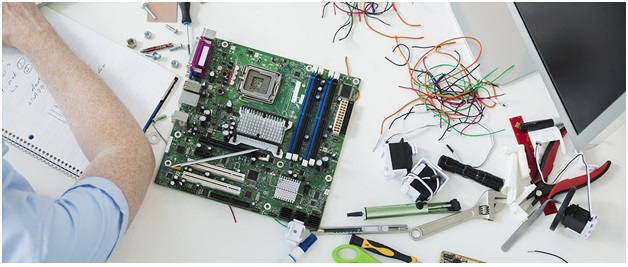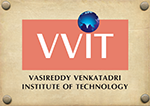List of Laboratories:
- Electrical Circuits Lab
- Electronic Devices & Circuits Lab
- Electrical Machines Lab
- Control Systems Lab
- Electrical Measurements Lab
- Micro Processor & Micro Controller Lab
- Power Electronics Lab
- Power Systems Lab
- Electrical Simulation Laboratory
- Power Electronics & Drive Lab (for M.Tech)
- R&D Lab (Energy Studies Lab)
- IOT Lab
ELECTRIC CIRCUITS LAB
The objective of Electric Circuits laboratory is to impart hands on experience in verification of circuit laws and theorems, measurement of circuit parameters, study of circuit characteristics and simulation of time response. It also gives practical exposure to the usage of CRO, power sources, function generator etc.
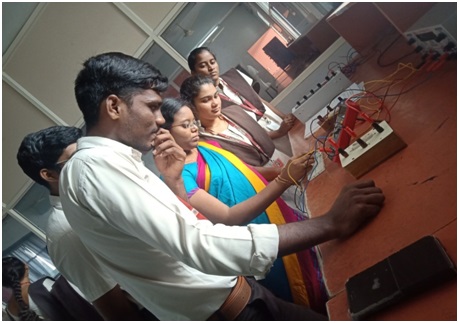
ELECTRONIC DEVICES & CIRCUITS LAB
The objective of Electric Devices Circuits laboratory is to impart hands on experience verify characteristics of various devices like P-N Junction diode, BJT, FET, and SCR. In this Lab students also verify applications Electronic Devices. It also gives practical exposure to the usage of CRO, power sources, function generator etc.
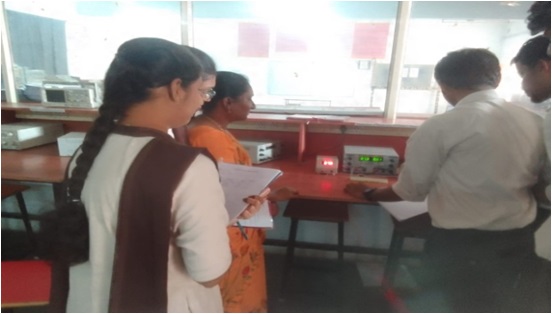
ELECTRICAL MACHINES LAB
The Electrical Machines Laboratory supports teaching; research and consultancy work on Electrical machines and drives. Through hands-on experiments with real machines, students gain practical experience on transformers and various types of machine drives. The laboratory can also be used for project work related to electrical machines and energy conversion.
The four main purpose of an electrical machines laboratory are:
- To provide the student with practical knowledge of handling the electrical machines.
- To correlate the theoretical classroom treatment with actual machine characteristics.
- To demonstrate the most suitable testing techniques.
- To educate engineer researchers and to conduct research in all aspects of electrical and electromechanical energy conversion.
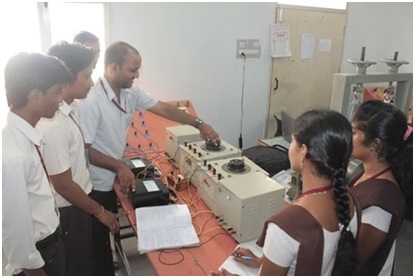
CONTROL SYSTEMS LAB
The Control Systems Lab in the Department of Engineering Technology contains a variety of laboratory equipment used in design and experimentation of digital and analog electromechanical feedback control systems.
The equipment in this lab is mainly used in lab projects of Process Control and Interface Design (ENT 311) and Electromechanical Control Systems (ENT 418) courses.
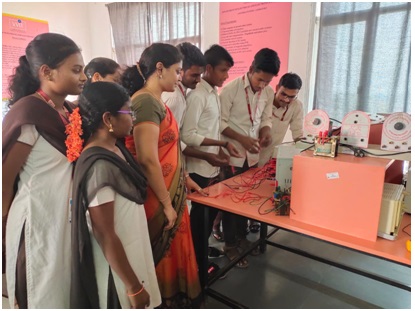
ELECTRICAL MEASUREMENTS LAB
Electrical Measurement laboratory is useful to assist the theory courses on Electrical measurements & Instrumentation. This laboratory deals with different types of electrical bridges, determining the displacement-voltage characteristics’ of Linear Voltage Differential transformer(LVDT), measurement of three phase active and reactive powers, calibration of single phase energy meter, measurement of strain using strain gauge, Transformer oil testing etc. Through hands on experiments with real measuring equipment, students gain practical experience on energy meter, LVDT, Transformer oil testing and various types of measuring devices.
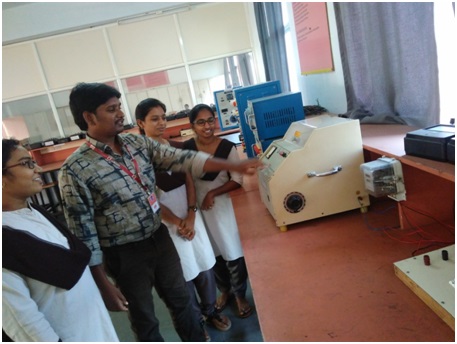
MICRO PROCESSOR & MICRO CONTROLLER LAB
The main objective of this lab course is to gain the practical hands on experience of programming the 8086 microprocessor and 8051 microcontroller and also to gain knowledge on interfacing of different peripherals to microprocessor.
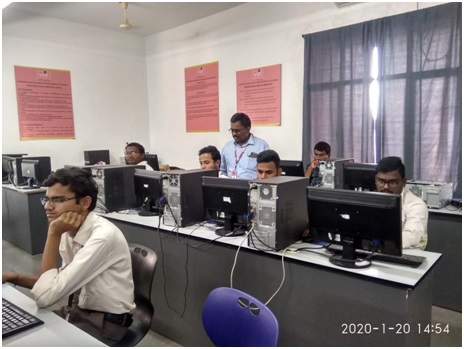
POWER ELECTRONICS LAB
The main learning objectives of power electronics lab are the students are able to study the characteristics of various power electronic devices and analyze firing circuits and commutation circuits of SCR practically along with the performance analysis of single phase and three phase full wave bridge converters and an operation of AC voltage regulator with both resistive and inductive loads, and also the students are able to understand the working process of Buck converter, Boost converter and inverters.
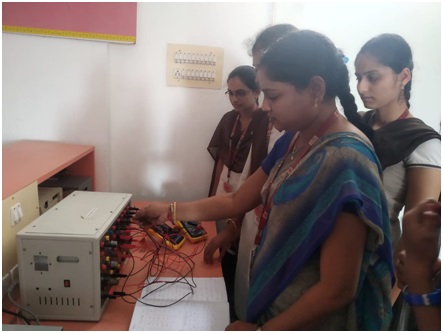
POWER SYSTEMS LAB
Power system Laboratory comprises of protection, simulation, high voltage and machine related experiments. The lab comes equipped with all the fundamental equipment needed for experiments involving electric power systems. The equipment available to students in the lab includes fundamental devices of electric power systems, such as transformers, electrical machines, power passive components, etc. Through the experiments and hands-on learning processing, students can directly measure the characteristics of fundamental components used in electric power engineering and study the operation of electric power systems. In the lab experiments the instructor can teach students effectively about the real electric power systems: operation, technical limitation, and safety issues. The laboratory also enables education and the highest level, integrating new course developments in electric power engineering, focused on these same emerging technologies. The laboratory contains the some hardware and software used by industry professionals in the creation and maintenance of power systems giving students the opportunity to develop the skills and experience that will aid them in the work field.
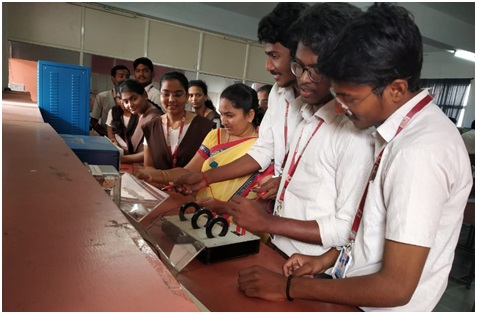
ELECTRICAL SIMULATION LABORATORY
This lab is intended to train students develop MATLAB/ PSPICE programs for simulate integrator circuit, differentiator circuit, Boost converter, Buck
converter, full convertor, PWM inverter, transmission line by incorporating line, load and transformer models.
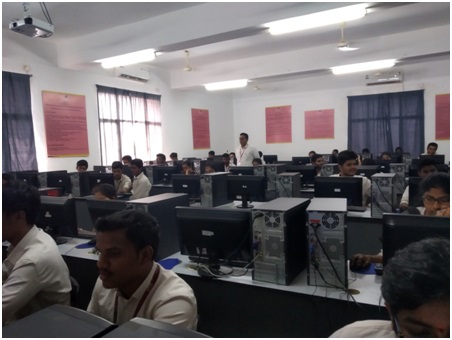
POWER ELECTRONICS & DRIVE LAB (for M.Tech)
The usage of power converters and drives in day to day life has increased in recent years. It is important for student to understand the fundamental principles behind all these converters. The importance of using pulse width modulated techniques to obtain high quality power supply (dc/ac converter) is also discussed in detail in this course.
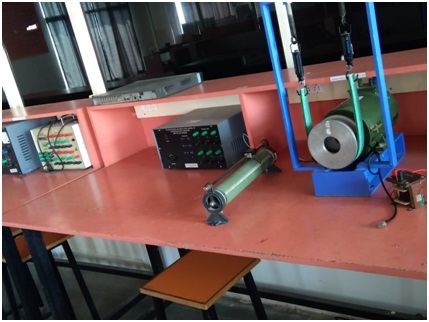
R&D LAB (ENERGY STUDIES LAB)
This project focuses on a battery charging technology utilized in small wind power generation system, in which the cost should be especially emphasized. Here a new control strategy is adopted to restrain the charging current by means of dynamically confining the duty cycle of the buck converter. In this project energy captured by the wind turbine is converted in to kinetic energy which is again converted into electrical energy with the help of PMSG. This electrical ac output is converted into dc by using rectifier. The dc output of rectifier is fed to the buck converter which produces 24V dc output which is stored in battery. 24V dc output of battery is converted into ac output by using inverter and transformer. Here two stages of conversion is done as the speed of wind and PMSG is not constant.
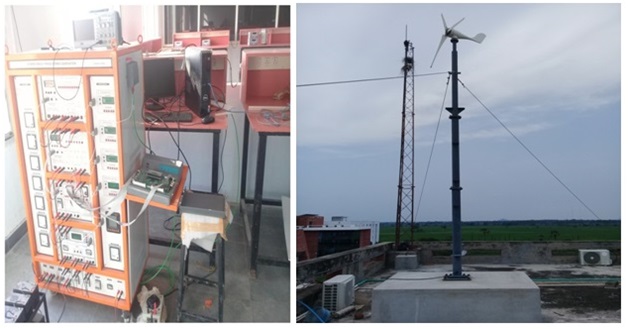
IOT LAB
IoT Lab is a research platform exploring the potential of crowd sourcing and Internet of Things for multidisciplinary research with more end-user interactions. It gives the power to the crowd to be at the core of the research and innovation process. It gives you the power to change the world and the way we understand it.
The Internet of Things (IoT) is the network of physical objects or ‘things’ embedded with electronics, software, sensors, and connectivity to enable objects to exchange data. IoT allows direct integration between the physical world and computer-based systems, helping to connect people, processes and devices.
The applications of Arduino uno, Raspberry pi 3, Node MCU are practicing with the students from second year itself. It is very advantageous to the students for the motivation towards research.
